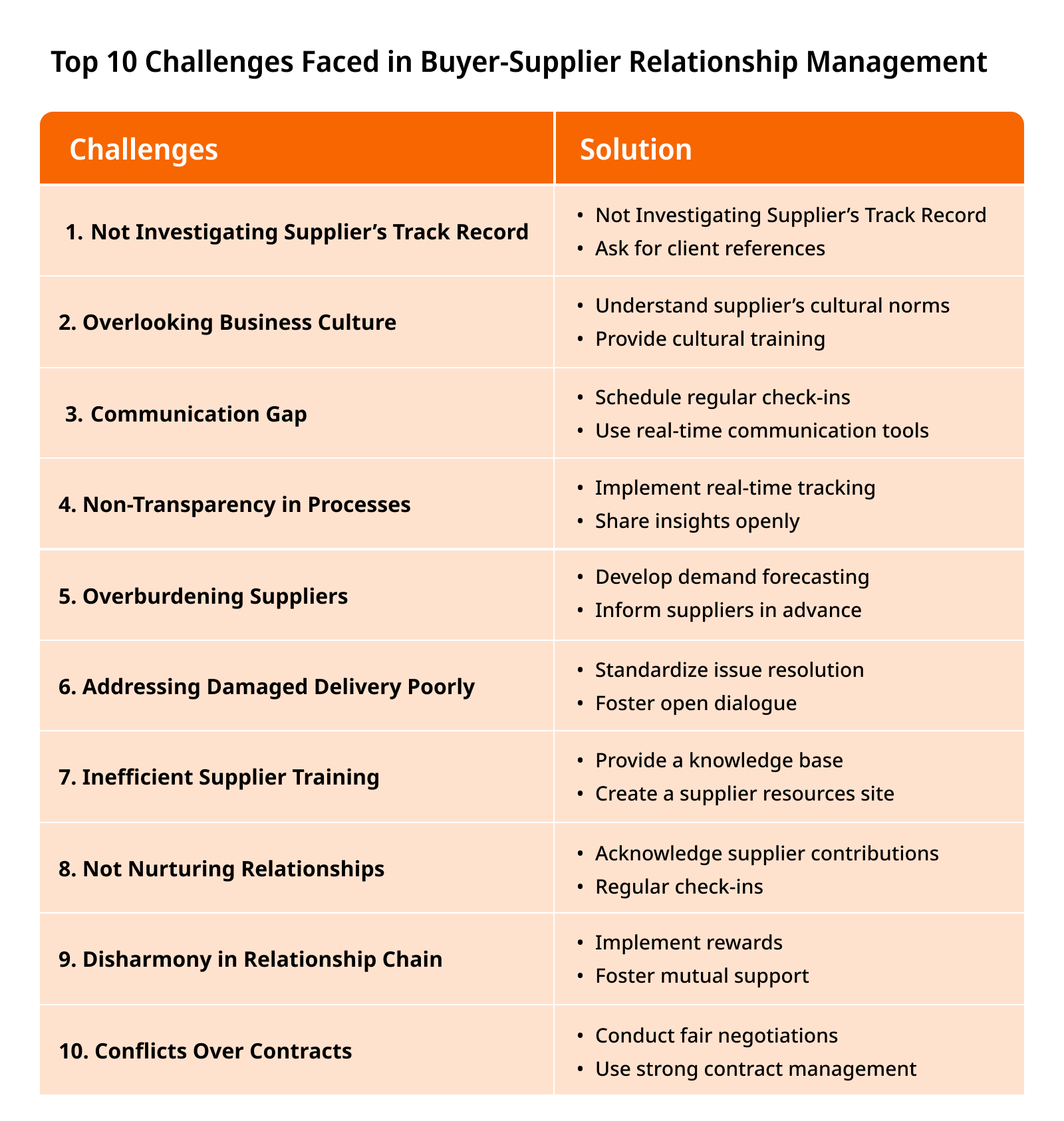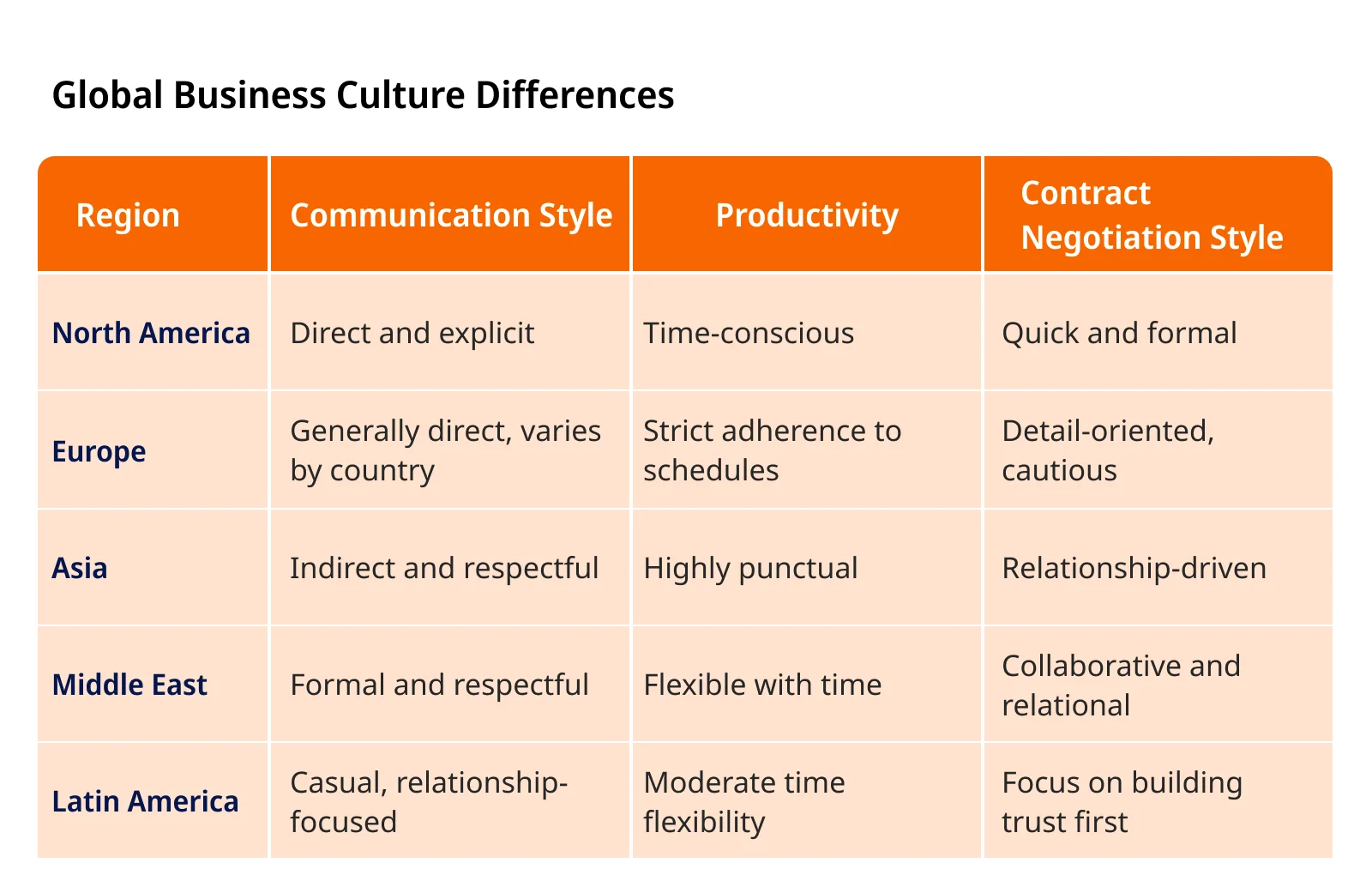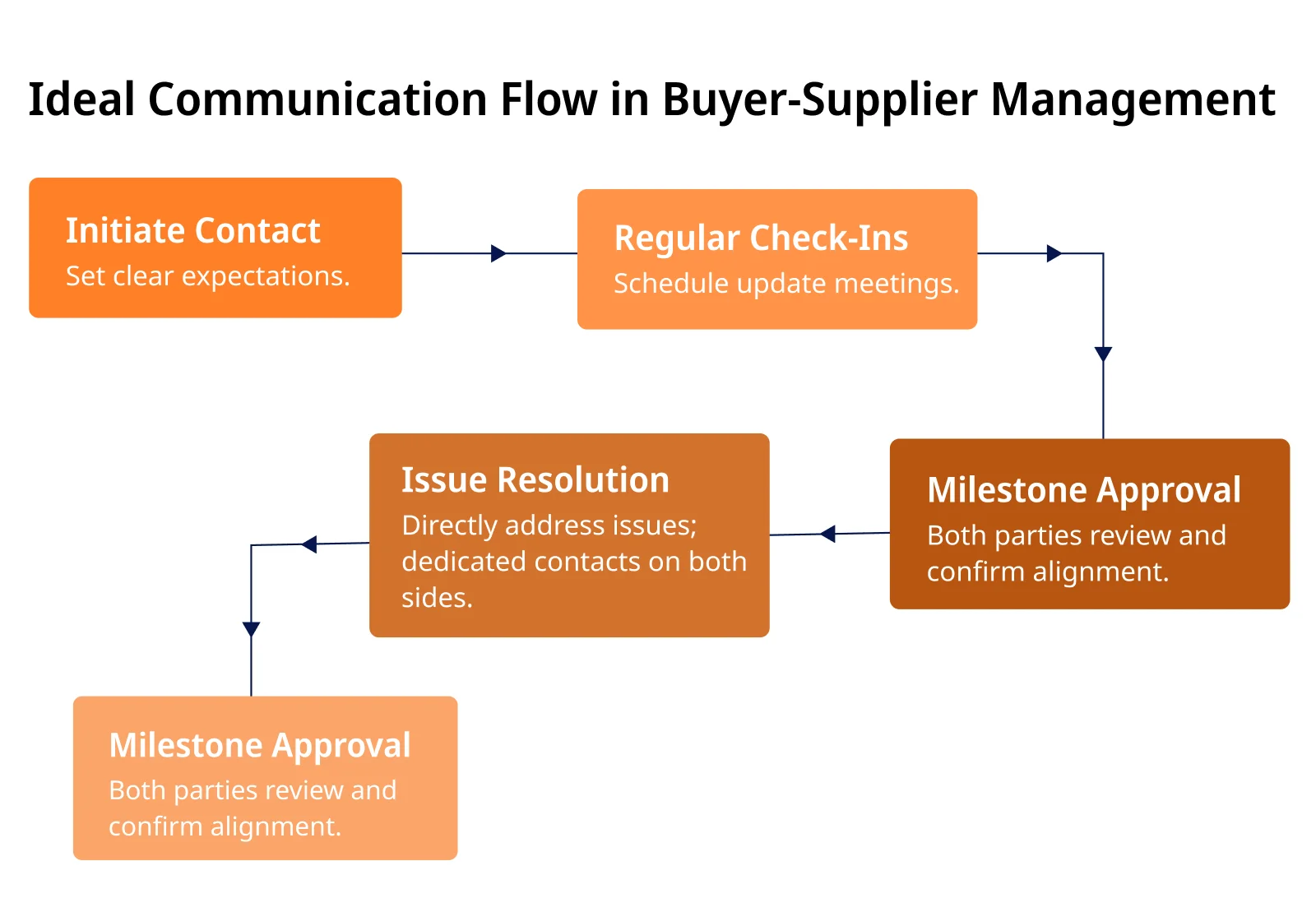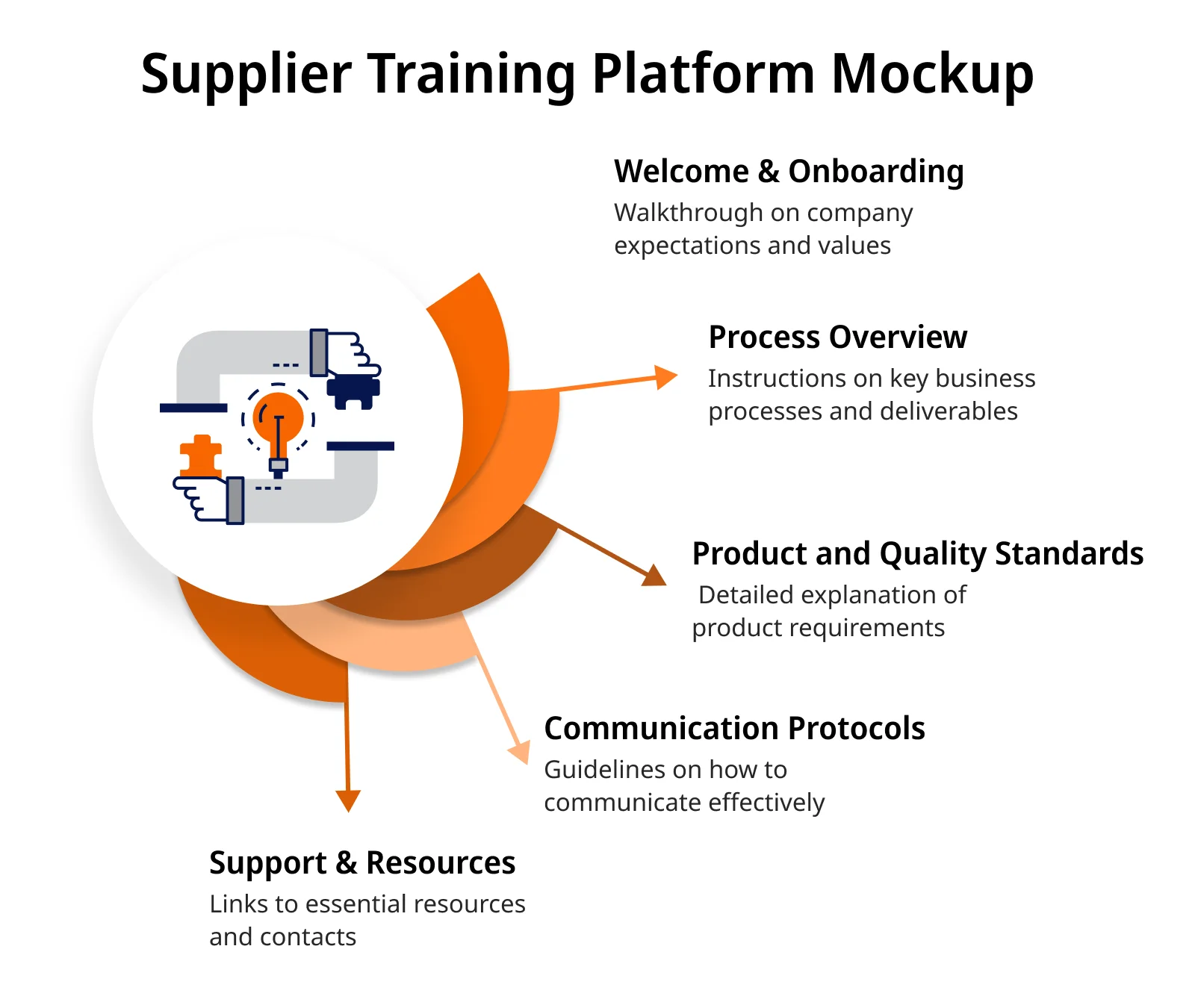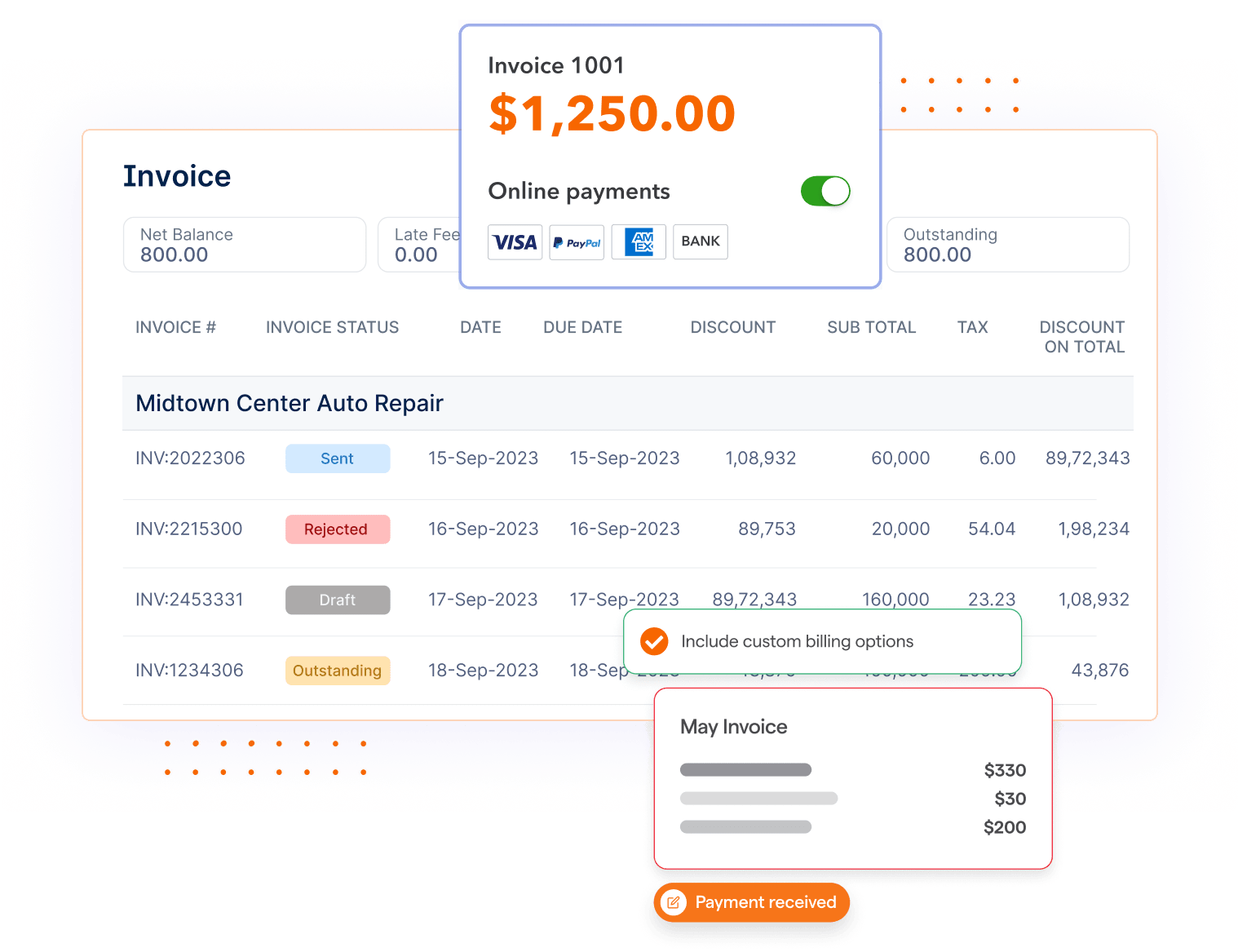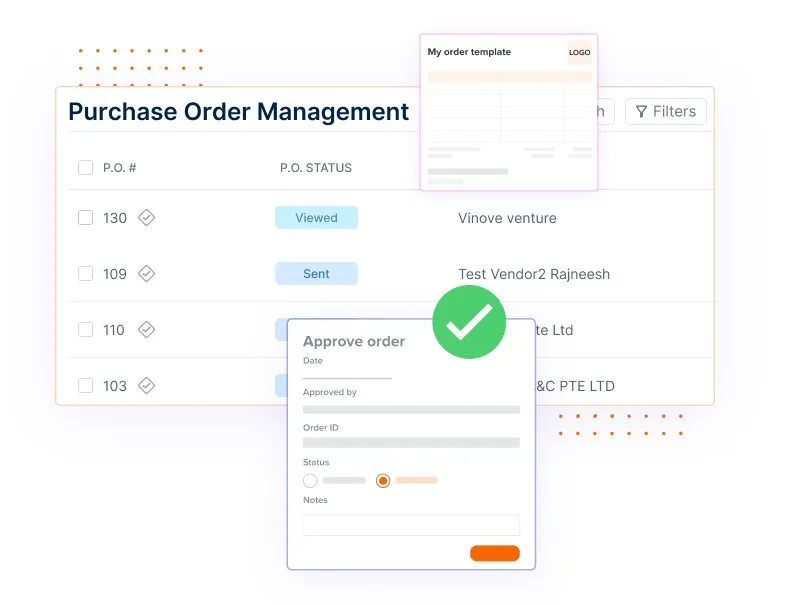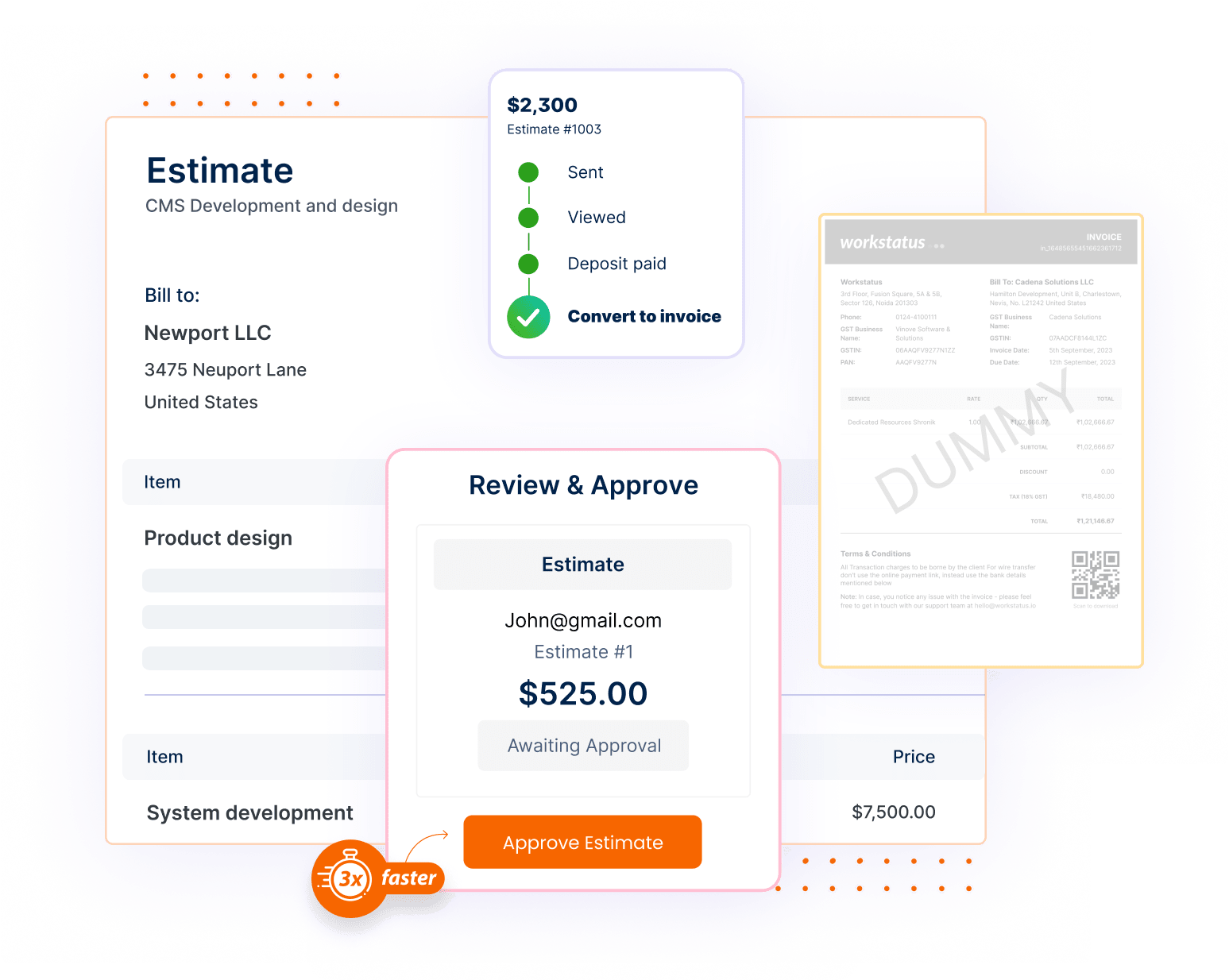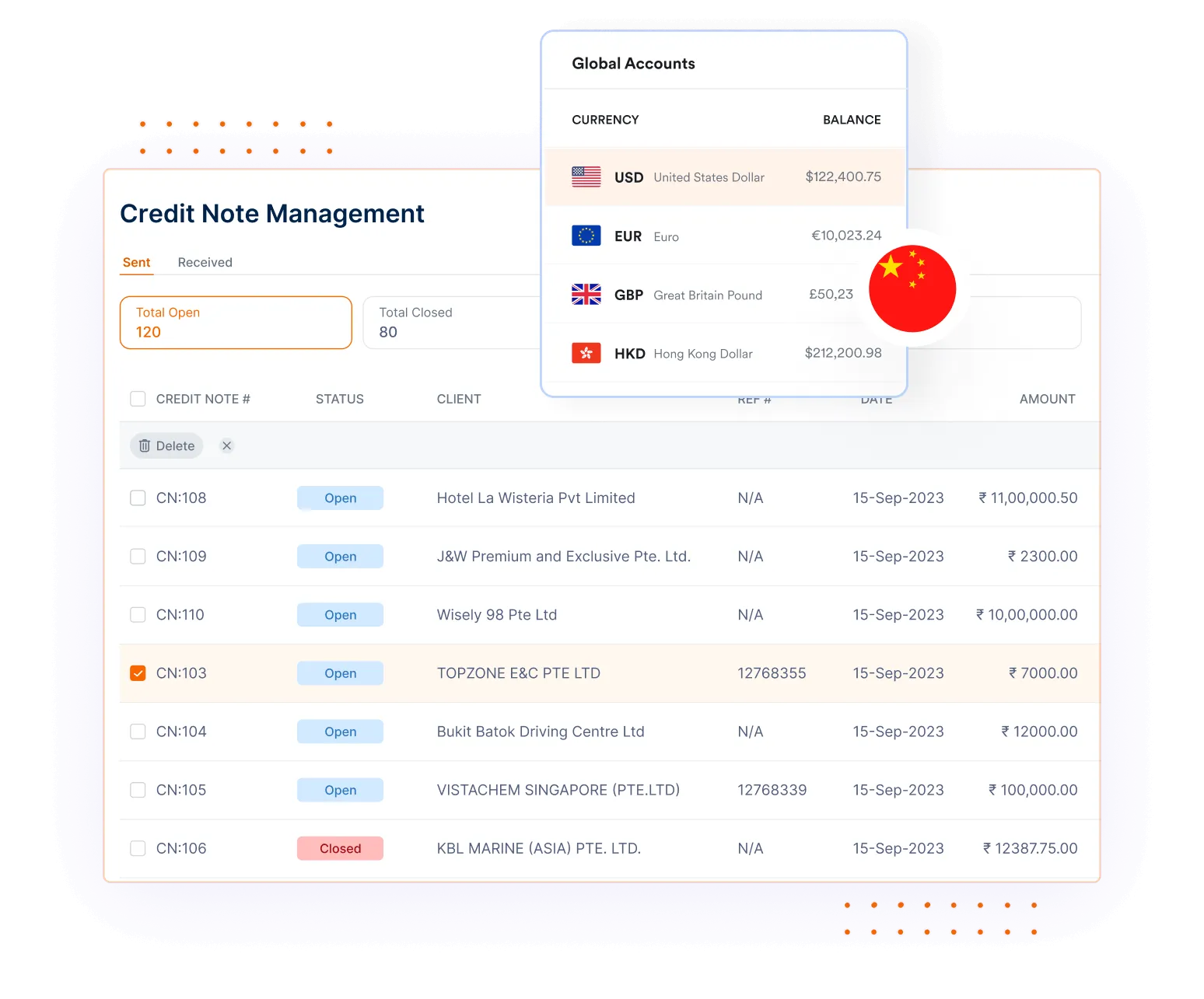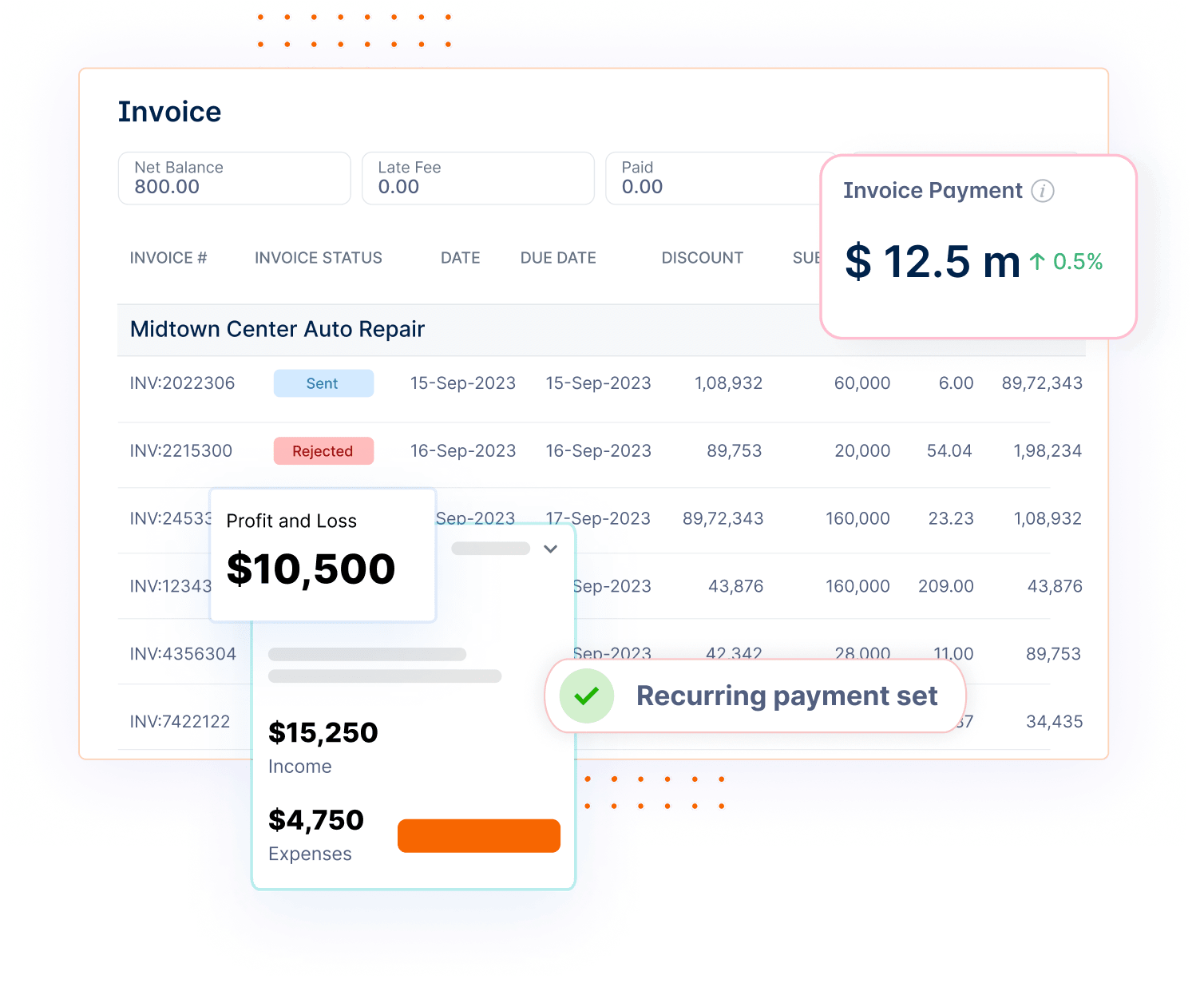One of the most often overlooked relationships in business is that with your vendors. For a business to deliver highly satisfactory services, it is crucial to maintain a streamlined workflow that starts with the vendors. Delays, gaps, and miscommunications can lead to significant interruptions in deliveries, ultimately hampering your overall business reputation.
When dealing with potential home buyers, monitoring third-party relationships as closely as in-house processes can be particularly challenging. Daily unknown gaps and uncertainties may arise, posing obstacles to delivering high-quality services. On average, businesses experience a regular delay of 48-72 hours while expecting shipments. A crisis occurs when the duration and frequency of these delays escalate, leading to increased costs, customer dissatisfaction, and potentially lost sales.
Errors that result in conflicts can stem from various sources. It is essential to understand and rectify these conflicts to ensure smoother processes.
Here are the top 10 challenges faced in buyer-supplier relationship management and suggestions for resolving them.
Buyer-Supplier Relationship Management Challenges
1. Not Investigating Supplier’s Track Record
Before engaging with any supplier, it is vital to review their past and current projects and understand their knowledge of tax and legal implications regarding exporting and importing. Knowing your supplier beforehand fosters the development of a healthy relationship and minimizes risks. A supplier with a solid track record can provide insights into their reliability and quality of service, which is critical for ensuring a seamless supply chain.
How to Improve?
- Conduct background checks and request references from previous clients. These references can offer insights into the supplier’s reliability and responsiveness.
- Use platforms like LinkedIn to assess their professional reputation and connections. Checking reviews and ratings on industry-specific websites can also provide valuable information.
2. Overlooking Their Industry’s Business Culture
Cultural differences can lead to varying interpretations and views, even during the same conversation. For instance, the approach to negotiations, deadlines, and communication styles can vary significantly across cultures. Recognizing and respecting these differences is essential for effective communication and collaboration.
How to Improve?
- Invest time in understanding the supplier’s cultural norms and practices. This understanding can foster a more harmonious working relationship and mitigate misunderstandings.
- Consider providing cultural training for your team to facilitate better interactions. This training can help your team navigate cultural nuances and establish rapport with suppliers.
3. Communication Gap
Effective communication is crucial in various aspects of business. If a supplier doesn’t grasp the company’s strategic goals, it can result in unmet needs and unsatisfactory outcomes. Regular communication with suppliers can significantly benefit the organization, ensuring that all parties are aligned and informed about expectations.
How to Improve?
- Establish regular check-ins to discuss goals, expectations, and feedback. These meetings can serve as a platform for addressing concerns and celebrating successes.
- Utilize communication tools that provide real-time updates and maintain transparency. Platforms like Slack, Trello, or Microsoft Teams can enhance collaboration and keep everyone informed.
4. Non-Transparency in Processes
Often, the lack of transparency in a supplier’s processes creates gaps in the company-supplier relationship. This non-transparency can lead to misunderstandings and misplaced expectations. Technology can bridge this gap effectively. Implementing an online purchase order and invoice management tool like Invoicera can enhance process efficiency and facilitate communication.
How to Improve?
- Leverage technology for real-time tracking and updates. This can include supply chain management software that allows both parties to monitor order statuses and changes.
- Encourage suppliers to share insights into their operational processes. Open discussions about how they handle delays or disruptions can foster trust and understanding.
5. Burdening the Already Over-Burdened Suppliers
Suppliers juggle multiple organizations simultaneously. Orders may be delayed due to product unavailability, which can weaken relationships. Forecasting your company’s requirements can help ensure smooth Supplier Relationship Management (SRM) processes. Suppliers need adequate time and resources to fulfill orders efficiently; understanding their limitations is key to a successful partnership.
How to Improve?
- Develop a forecasting model to predict supplier needs accurately. This model should consider market trends, seasonal demands, and historical data to enhance order accuracy.
- Communicate demand fluctuations in advance to aid suppliers in their planning. Providing suppliers with visibility into your upcoming needs allows them to allocate resources accordingly.
6. Forgetting Relationship at the Time of Damaged Delivery
When delivered products are damaged or flawed, responding aggressively can jeopardize the relationship. It’s crucial to notify the supplier respectfully and request a replacement. Striking a healthy balance in addressing issues with underperforming suppliers is essential for maintaining a positive working relationship.
How to Improve?
- Create a standardized process for addressing damaged goods while maintaining respect. Develop clear guidelines for how to report issues and expectations for resolutions.
- Encourage open dialogue to resolve issues amicably. Approach conversations with a solution-oriented mindset rather than placing blame.
7. Inefficient Supplier Training
If a supplier doesn’t understand what your company wants its customers to experience through their products, they will struggle to meet your supply needs. Ensuring that suppliers are well-trained on your company’s objectives is key to aligning goals and expectations. Effective training can lead to improved quality and satisfaction.
How to Improve?
- Develop a comprehensive knowledge base to train suppliers on your processes. This can include onboarding materials, product specifications, and service expectations.
- Consider setting up a dedicated website for suppliers to access necessary resources. An online portal can provide easily accessible information and updates.
8. Avoiding The Need To Nurture
A healthy relationship requires nurturing, and abandoning suppliers during successful times can create stress and resentment. Involve suppliers in every milestone and celebration of company success. Recognizing their contributions can foster loyalty and long-term partnerships.
How to Improve?
- Acknowledge supplier contributions during company achievements. Simple gestures like thanking suppliers publicly can strengthen the relationship.
- Regularly check in with suppliers to build rapport. Building personal connections can lead to better collaboration and trust.
9. Disharmony in Buyer-Supplier Chain
Without recognition and encouragement, suppliers may become disloyal. Changing suppliers isn’t always the solution, as it can be time-consuming and costly. Gaining supplier loyalty through encouragement and incentives is vital. A strong supplier relationship can lead to better pricing, priority service, and increased reliability.
How to Improve?
- Implement a supplier reward program to acknowledge exceptional performance. This could include bonuses, public recognition, or exclusive contracts for high-performing suppliers.
- Foster a community of mutual support and collaboration. Create forums or workshops where suppliers can share best practices and insights.
10. Conflicts Over Contract
Signing a biased contract can lead to unpleasant situations for suppliers. Ensure that the contract offers benefits for both parties. Contracts must be reviewed meticulously before finalization, employing strong contract lifecycle management practices to guarantee fairness and clarity. Clear contracts can prevent misunderstandings and set a positive tone for the relationship.
How to Improve?
- Engage legal experts to review contracts for potential biases. Having an impartial third party can help identify areas that may disadvantage suppliers.
- Include negotiation phases to ensure both parties are satisfied. A collaborative approach to contract negotiation fosters trust and commitment.
Enhance Buyer-Supplier Relationship With Invoicera
Invoicera is an online invoicing tool that provides a host of features designed to effectively manage buyer-supplier relationships. With Invoicera, businesses can streamline their operations and reduce the burden of administrative tasks. Key features include:
Timely Invoice Scheduling
Deliver invoices to buyers as and when due and ensure that payments are received within the stipulated time and date.
Purchase Order Management
Allow buyers to send purchase orders without any hindrance to ensure that the general order flow is not disrupted.
Estimate Submission
Estimates developed by suppliers can then be easily submitted to the buyer for approval, thereby enhancing the efficiency of the negotiation process.
Credit Notes for Price Settlements
In cases of pricing disputes, buyers can issue credit notes conveniently, ensuring clarity and fairness.
Online Access to Invoices
Invoices and account statements can also be viewed by the buyers for free, encouraging more transparency and credibility among the buyers.
Opt for Invoicera to manage your accounts payable and receivable effectively. Keep a detailed record of all your finances and invoices using this cloud-based accounting software. FREE SIGN UP.
Conclusion
Business management can never be complete without paying keen attention to the buyer-supplier relationships. Although such relationships are crucial in the business world today, they come with some challenges that should be dealt with for improved efficiency, minimized costs, satisfaction of customers, and value addition. Good communication, openness, and courtesy towards customers play an important role in developing long-term business relationships that, in turn, enhance the business.
Investing time and resources into understanding and improving these relationships can pay significant dividends. By recognizing the importance of suppliers in the supply chain, businesses can create a collaborative environment that fosters loyalty, innovation, and shared success.
In a world where agility and responsiveness are paramount, nurturing buyer-supplier relationships is not just an option; it’s a necessity for sustainable growth. Embrace the challenges, implement the solutions, and watch your business thrive.
Frequently Asked Questions (FAQs)
Ques: What is the role of a Supplier Relationship Manager?
Ans: A Supplier Relationship Manager ensures that purchase orders are sent on time, payments are released as scheduled, and all supplier grievances are addressed promptly. In essence, they facilitate a smooth flow of raw materials and operations.
Ques: How do suppliers typically deal with poor performance?
Ans: Communication is key to resolving any issues. If you face challenges with your suppliers, it’s essential to address the matter directly, hold discussions, and take necessary actions based on your policies if issues remain unresolved.
Ques: What are the four primary sources of risk in procurement?
Ans: Common procurement risks include:
- Inadequate needs analysis
- Poor supply chain management
- Inefficient contract management
- Fraud and corruption

